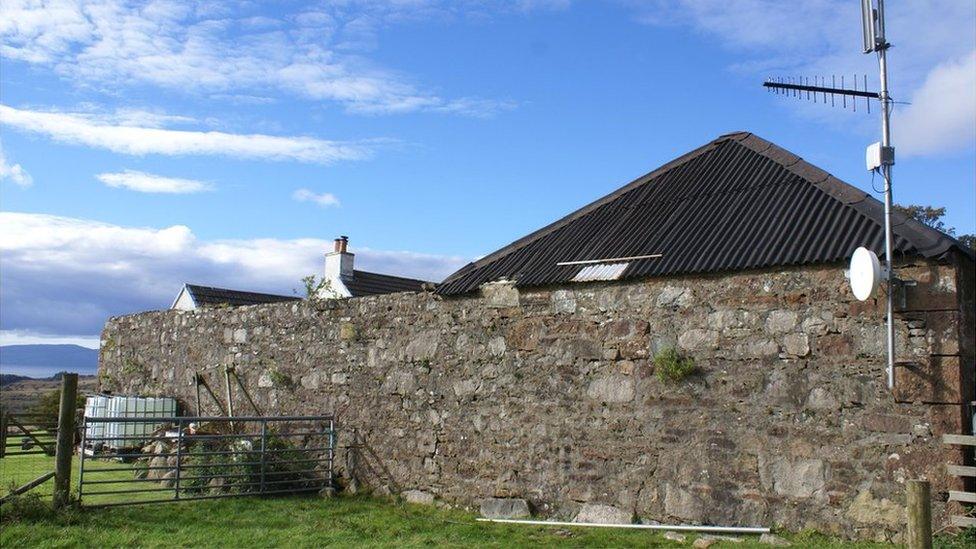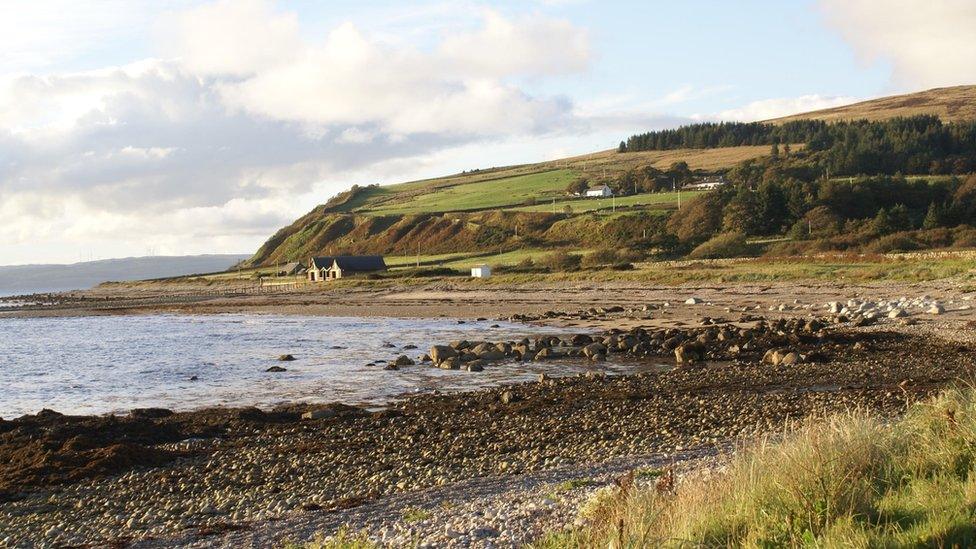Dead TV signals offer broadband hope in rural Scotland
- Published

Equipment will be installed on homes and buildings to offer broadband in remote areas
Part of the wireless spectrum freed up after the digital TV switchover is being used to provide broadband services in rural Scotland.
The first to benefit from "white space" internet will be residents on the Isle of Arran, who have struggled with poor broadband speeds.
Domain name firm Nominet is partnering with telecoms firm Broadway Partners to roll it out.
They claim it is the first commercial service using the technology in Europe.
The service will be available in two packages, one offering speeds of up to 25Mbps (megabits per second) and one offering 35Mbps.
There have been several trials of white space technology (TVWS) in the UK. BT ran some on the Isle of Bute and are currently running a small one in Sutton, Suffolk.
The technology has been used at London Zoo to broadcast footage of meerkats and has also been considered as a way of providing broadband at sea.
BT now believes it can get fibre broadband solutions to almost 99% of UK homes by the end of 2020, so has moved its attention to technologies such as long-reach very-high-bit-rate digital subscriber line (VDSL) and fibre to the home (FTTH).
"We think wireless and satellite will be the most likely potential solutions for the final 1-2%," said a BT spokesman.

The west coast of Arran has very poor broadband coverage
Nominet is convinced that TVWS can play a role.
Russell Haworth, chief executive of Nominet, said: "The Arran roll-out shows that TV white space can reach places that other technologies cannot and paves the way for further deployment of this dynamic spectrum management technology."
Michael Armitage, founding director of Broadway Partners, added: "TV white space has proved its mettle, cutting through hard to reach rural forested areas on Arran which, in fixed wireless terms, is pretty much unheard of.
"This technology will be a powerful tool in the drive to deliver affordable broadband access for all communities throughout Scotland and abroad."
It will first be rolled out to residents on the west coast of Arran, with services to the rest of island following in the coming months.
Better connectivity could boost tourism, which is the main industry on Arran. During peak season, the population grows from 5,000 to 25,000.
The firms are also planning to roll out TVWS in Wales but has not said where or when.
Andrew Ferguson, editor of broadband website Think Broadband, said: "TV Whitespace has some advantages over the majority of wireless services, since it is using lower frequencies, which means it can go further and will penetrate some obstructions.
"The penalty to operating at these lower frequencies is that speeds may be slower than traditional fixed wireless services. From other trials of white space technology I am expecting speeds to be in the region of 10 Mbps.
"If you are just getting broadband for the first time or have an unreliable sub-1 Mbps service, that will feel amazing - and unlike satellite broadband will not have excessively high latency."
But he added that as people increasingly demand super-fast broadband, white space technology will be seen as only a "stepping stone" to faster technologies.
- Published31 October 2016

- Published7 November 2016
